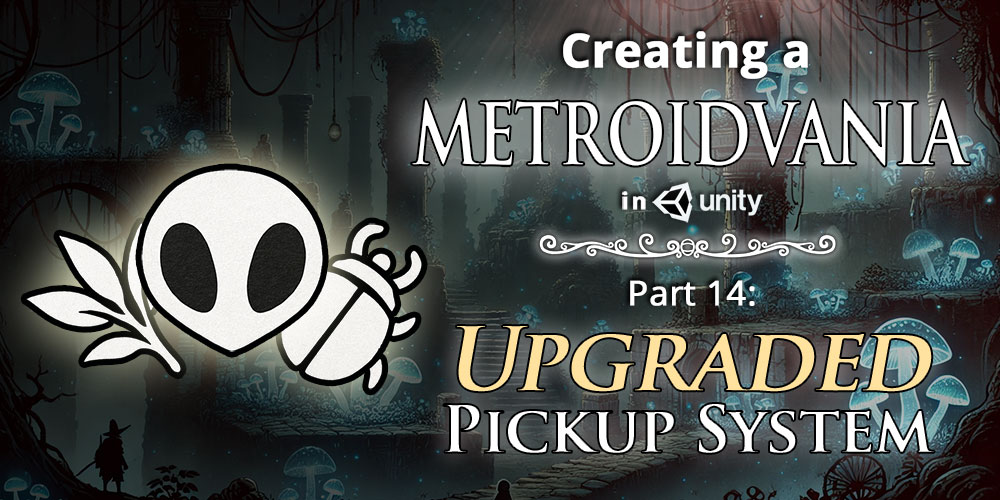In Part 14, we are going to be improving upon the pickup system, and the UI overlay that pops up when you pick up an item. We are also going to be using the hit stop system that we made in Part 11 for the UI interlude that happens whenever we pick up an item.

Creating a Metroidvania (like Hollow Knight) — Part 14: Modular Pickup System
This article is a part of the series:
Creating a Metroidvania (like Hollow Knight) in Unity
 Unlock Content
Unlock Content